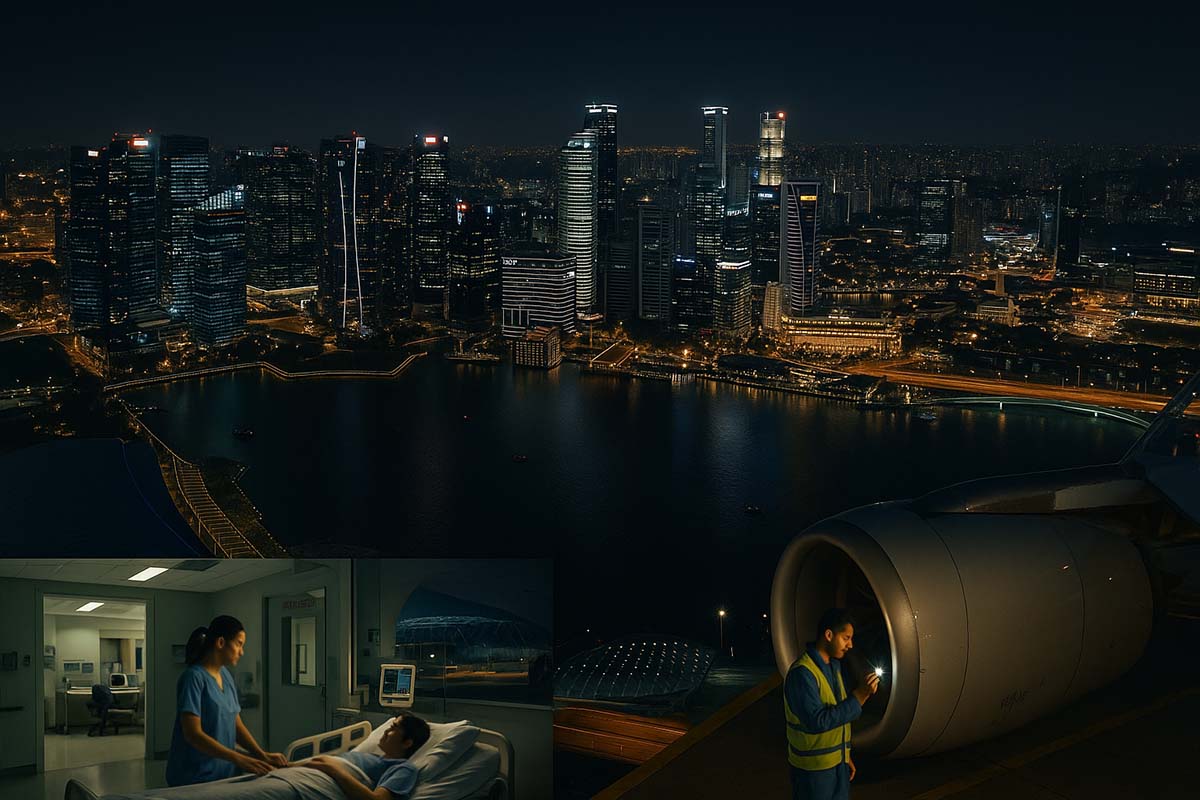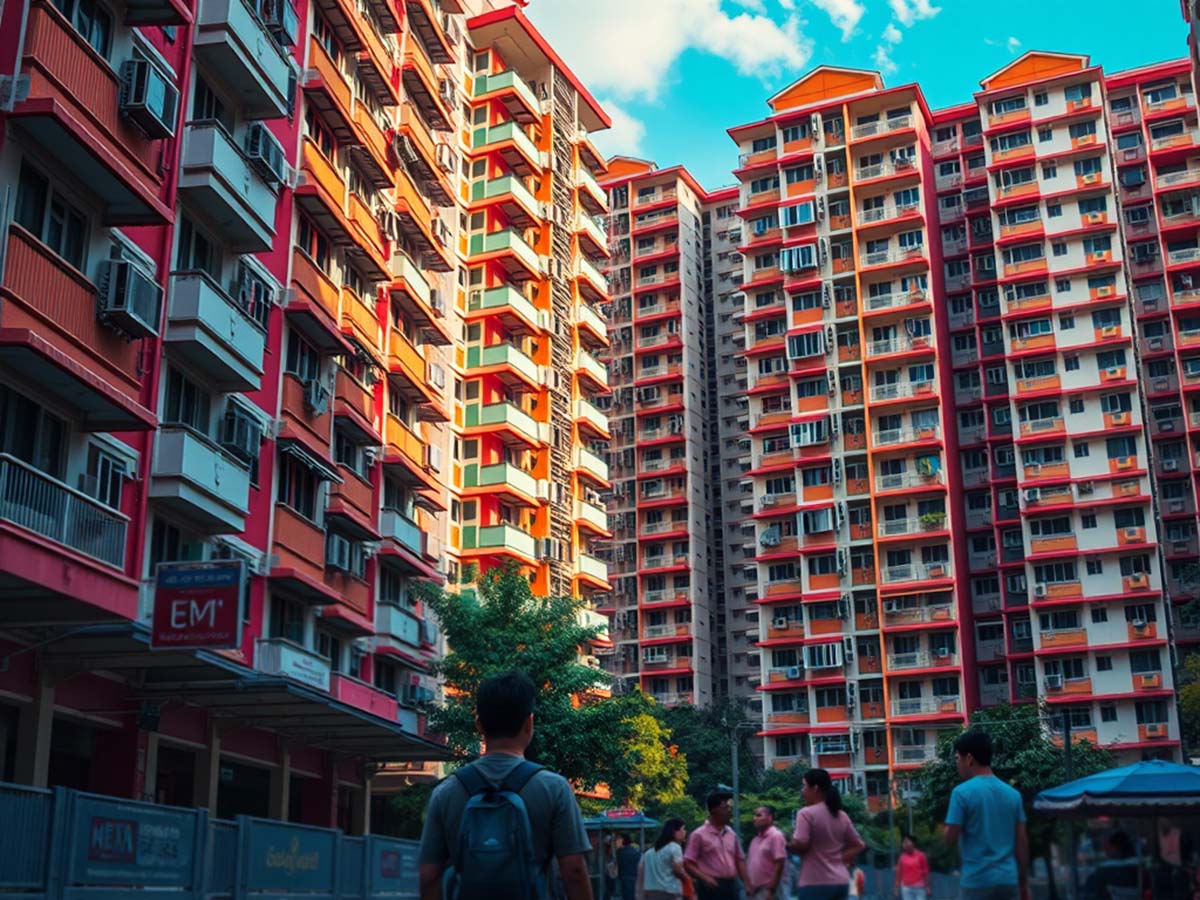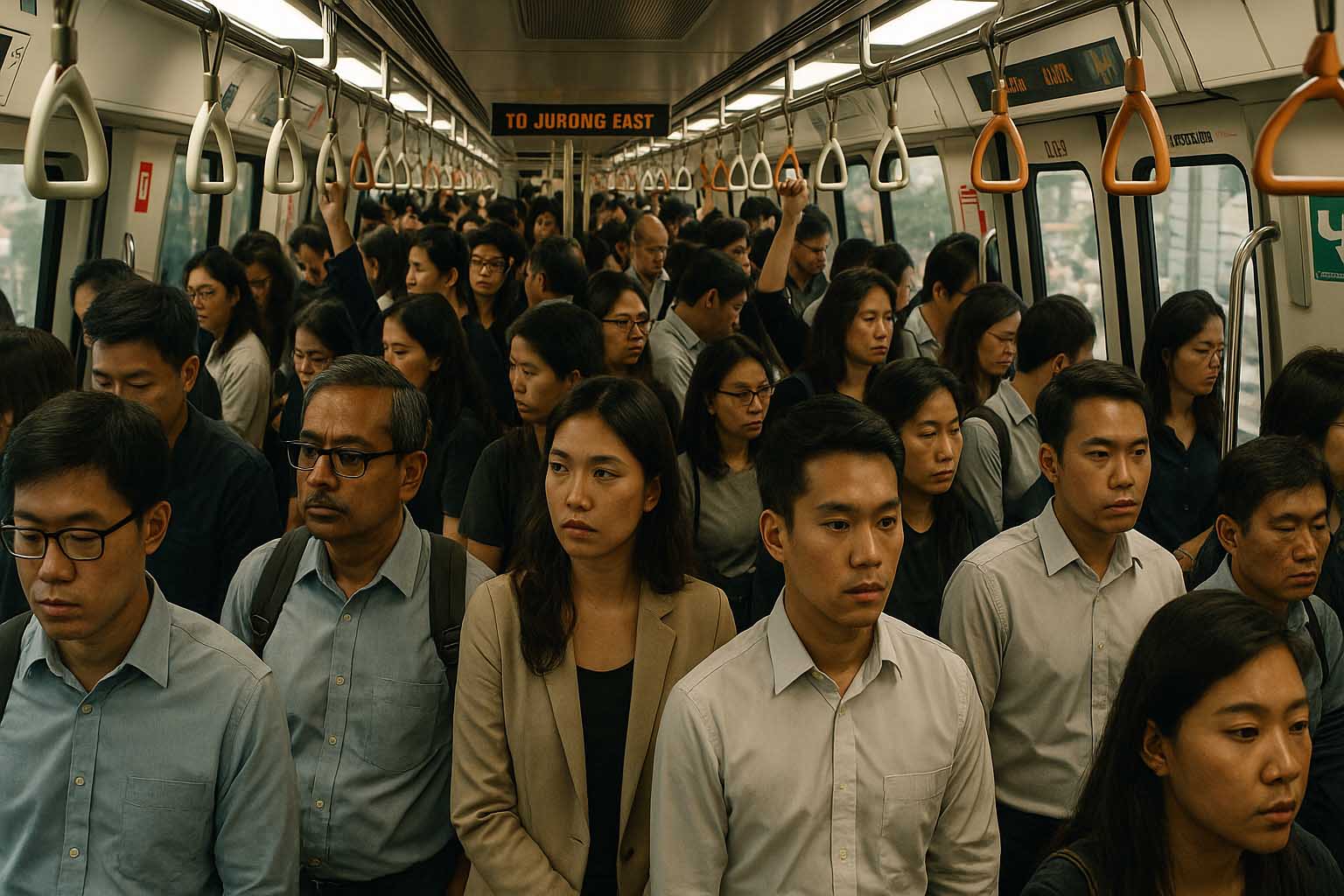Life After Dark: The Reality of Night Shift Workers in Singapore
Every night, while most people in Singapore are fast asleep, a different group steps into action. They are the backbone of essential services that keep the country functioning smoothly through the dark hours. From emergency room nurses to airport technicians, data security specialists to bakers preparing for the morning rush—these individuals power the city’s heartbeat when the rest of the world is quiet. Their lifestyle is far from ordinary, yet it holds a rhythm and purpose all its own.
This article provides a deeper understanding of what it means to work at night in Singapore, looking into the reasons people choose this schedule, the impact it has on their lives, and the ways they maintain health and balance despite the odds.
• More than 15% of the global labor force works night shifts, based on data from the International Labour Organization.
• These roles often come with better pay, yet expose workers to health risks and social strain.
• Strong routines, healthy meals, and community support help night workers stay mentally and physically fit.
A Global Web of Nocturnal Labor
Night work isn’t a local trend—it’s part of a vast global cycle. When Singapore’s late-night hospital teams prepare for their rounds, similar workers in Mexico City and Dubai are doing the same. In Paris, rail operators keep cargo moving while the city sleeps. In Los Angeles, technicians maintain data centers for clients in Asia. Singapore, with its strong global links and continuous services, is a key player in this chain.
At Changi Airport, for example, technical staff complete aircraft inspections for early morning flights to Tokyo. Meanwhile, cleaning crews prep terminals for passengers who won’t arrive for hours. While the passengers rest, workers ensure everything is ready by dawn. This constant rotation illustrates that night labor is part of something larger—a 24-hour system that spans the globe.
Why Some Workers Prefer the Night
While many avoid night work due to the odd hours, others actively seek it out. Financial benefits are a strong motivator. Many employers offer higher base salaries, overtime rates, or differential pay for overnight duties. These extra earnings help workers save for education, repay debts, or support extended families.
Another factor is flexibility. Some workers prefer having their days free to run errands or care for children. Others enjoy the quiet, traffic-free commute, which reduces time and stress spent traveling. For introverts or people who dislike crowds, night shifts offer a more relaxed environment.
In certain professions, the night schedule is also seen as more manageable. Nurses may find fewer administrative demands during night duty. Security staff might experience quieter shifts. Even IT workers often report more focused work due to fewer distractions from clients or colleagues.
Long-Term Effects on Health and Daily Life
Still, night work has costs. Disruption of the circadian rhythm—the internal body clock—can lead to both physical and psychological issues. Fatigue builds up when sleep is short or irregular. This can affect alertness, memory, and emotional stability.
Medical studies have linked long-term night shift work to higher chances of developing heart disease, obesity, and type 2 diabetes. Hormone levels, including cortisol and melatonin, may become unbalanced. This weakens the immune system, increasing the risk of illness.
Sunlight exposure also plays a role. Without regular daylight, vitamin D levels may drop. This affects bone health, energy, and mood. Workers can feel disconnected from their surroundings, which may lead to loneliness or depression. Many miss social gatherings, religious events, and family celebrations, often finding themselves out of sync with the rest of society.
Despite these challenges, many workers adapt well. Some credit their ability to stay motivated to the higher pay or the freedom to pursue personal goals during the day.
Maintaining a Stable Routine
It takes structure and intention to stay healthy while working at night. Workers who thrive often follow habits that help reset their body clock and maintain steady energy levels.
- Go to bed and wake up at the same time every day—even on days off—to maintain consistency.
- Use blackout curtains or eye masks to keep the room dark during the day. Light disrupts melatonin production, making sleep difficult.
- Eat balanced meals. Have a small dinner before starting the shift and a full breakfast after. Avoid greasy or sugary foods, which may affect digestion or cause sluggishness.
- Stretch or walk briefly during breaks. Light movement keeps blood flowing and boosts alertness.
- Limit caffeine in the second half of the shift to help fall asleep more easily after work.
Some workers wear sunglasses on the way home to reduce light exposure, helping signal the brain that it’s time to rest. Others use white noise machines to block out daytime sounds.
Social Networks That Thrive at Night
Singapore’s night workers have developed unique communities. In hawker centers that operate around the clock, it’s common to see cleaners, drivers, and chefs sharing coffee at odd hours. Some exchange updates about safety procedures or swap stories about their shifts.
In industrial zones like Jurong Island, engineers and technicians ride the same buses and often look out for each other. This sense of camaraderie becomes vital, especially when traditional support systems—like after-work dinners or weekend meetups—aren’t available.
Night shift workers often develop strong bonds with those on the same schedule. These connections offer emotional support and help reduce feelings of isolation.
Voices That Tell a Different Story
Ari, a technician from Jakarta, says working at night helps him stay focused. “There’s less noise, fewer interruptions. I can do more in less time.”
For Mei Lin, a nurse originally from Kuala Lumpur, night duty reveals the deeper side of her work. “Patients are more open in the quiet. I feel I’m giving them the care they truly need,” she shares.
Carlos, a Spanish network engineer living in Singapore, picked up baking to unwind after work. “It became my therapy. I meet my neighbor every morning over bread and coffee before we both crash into bed.”
Programs That Offer Real Support
Some companies in Singapore go beyond salary incentives to care for their night teams. They provide access to rest lounges, discounted meals with fresh ingredients, and even flexible work schedules. Wellness programs now include counseling, fitness reimbursements, and educational resources on sleep hygiene.
The Ministry of Manpower regularly updates safety and health guides that help employers develop night shift strategies. These include ergonomic suggestions for desks and machinery, rotating schedules to reduce burnout, and workplace lighting designed to minimize eye strain.
Globally, other nations have adopted similar practices. In Canada, it’s common for labor laws to mandate rest days after long stretches of overnight work. In South Korea, certain tech firms include dedicated nap rooms. These systems acknowledge that night workers aren’t just filling a time slot—they’re doing a job that demands serious care and attention.
Trends That Shape the Road Ahead
Technology and digital operations continue to grow, and with them, the demand for 24-hour services. Singapore’s role as a data and logistics hub means it will rely even more on skilled night shift workers.
Forecasts from organizations such as McKinsey Global Institute show that nearly a third of digital services could need continuous oversight in the near future. As global trade and remote work increase, night shift operations will only become more vital.
For this reason, more investment in mental health and rest planning is needed. Employers must consider fatigue management, emotional resilience, and lifestyle education. Long-term business sustainability may depend on how well companies support those who work in the shadows.
Resilience in the Quiet Hours
The night shift isn’t for everyone. But for those who embrace it, the rewards can be meaningful. Many find a quiet strength in doing work that others overlook. They learn to organize their time carefully, listen to their bodies, and protect their well-being with fierce determination.
Behind every clean hospital hallway, every plane that takes off at dawn, and every secure digital connection is a person who chose to give up daylight for service. Their stories deserve attention and respect.
Night shift workers remind us that productivity doesn’t stop when the sun goes down. Their lives may follow a different rhythm, but they keep the world turning just the same.














Leave a Reply